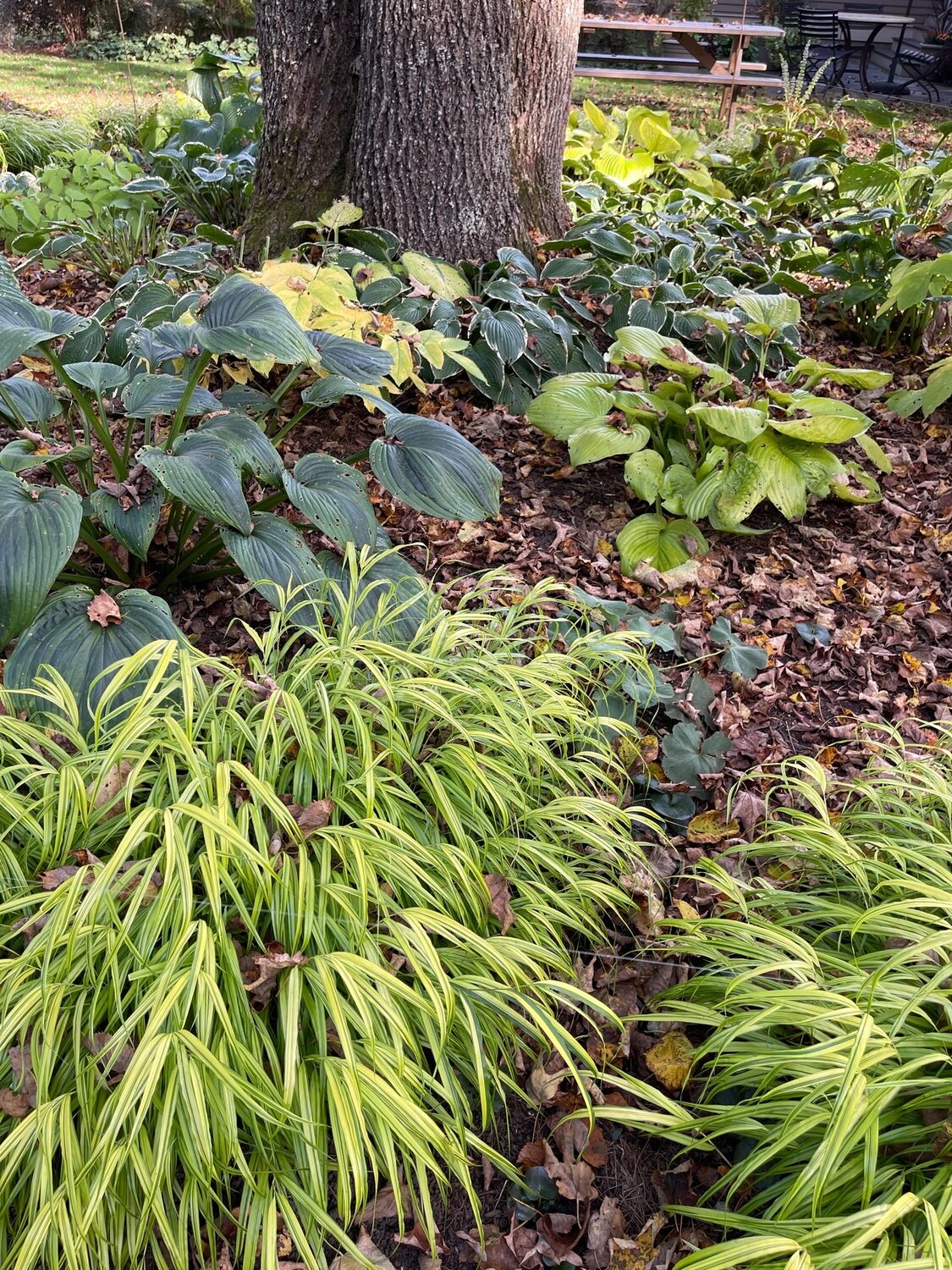
It’s that time again, when the leaves are falling and homeowners and landscape crews will be busy clearing them. But there are other choices to make if you live on a property with leaves; even a small property can be managed to make a difference for wildlife and our ecosystems.
“Leaving the Leaves” is a concept that can reduce the enormous decline in the number of birds and insects. Why? Fallen leaves are a resource for our gardens — they hold nutrients that the trees and other plants need the following year. They also provide habitat — food, shelter, and nesting materials — for native insects and wildlife that overwinter in the leaves, including fireflies, bees, butterflies and moths, and frogs.
“Leaving the leaves” is not an all or nothing effort — small actions can make a difference.
If you can’t leave all of the leaves, consider alternative ways you can use many or some. Rake them from lawn areas and use them as mulch around perennials and shrubs. Better still, pile them around trees where they can decompose over time to provide natural fertilizer. If you already have a compost pile, use leaves as a brown layer, alternating with green layers, to create rich compost. You can also rake them into a pile in a wire circle so they can decompose to provide rich, valuable leaf mold for your garden. Many of us have places in our yards — perhaps behind a planting bed or near a fence — where we could keep a brush pile and leaf pile that would be relatively inconspicuous yet valuable for wildlife. Any of these strategies will help to keep leaves where they best belong — in your yard.
If you still have too many leaves to tuck around your property, use biodegradable paper bags to collect them for composting at a town facility.
Southampton Town’s leaf pickup will begin on Monday, December 4. It’s important to use paper bags that will decompose, not heavy plastic contractor bags. All registered residents over age 70 can put leaves out loose by the side of the road for pickup. You can still register online or in person during October. There’s a leaf program hotline at 631-702-2585. You can also self-haul your leaves for no charge at any of the town’s transfer stations, with the exception of Sag Harbor.
Another thing we can do to enhance our quality of life and that of our neighbors is to use rakes, not blowers, to gather leaves. The noise pollution created by blowers as well as the disruption of insects that have already sought shelter in the leaves are strong reasons to rake, not blow.
Each one of us can make a difference in the quality of our ecosystems and our lives. Take the opportunity this fall to “leave the leaves.”
Alicia Whitaker is a member of the Westhampton Garden Club Conservation Committee.